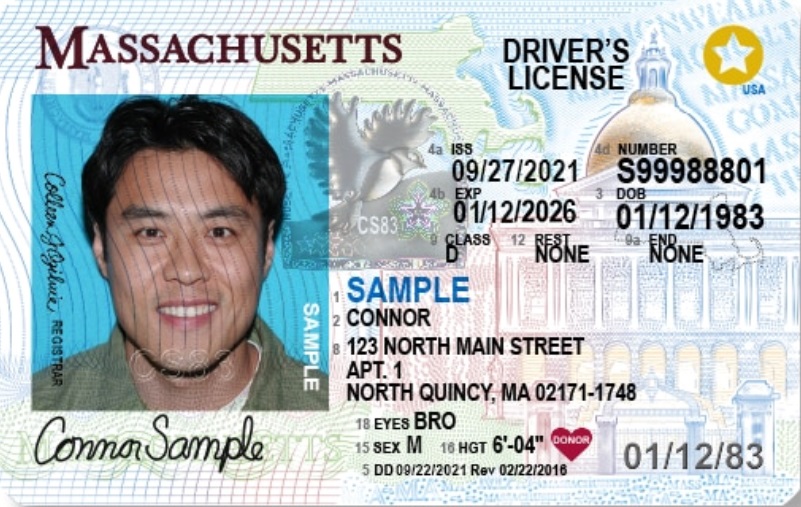latest
Report: Massachusetts license law gives “new legitimacy” to undocumented immigrants

By Chris Lisinski
OCT. 6, 2022…..The new law whose ultimate fate is in the hands of voters would give undocumented immigrants “new legitimacy” in Massachusetts by allowing them to acquire driver’s licenses, and it would also create at least a slight risk of producing government records that could be used to track those in the country without legal status, a new analysis concluded.
Massachusetts is poised to become the 17th state in the country to open up access to licenses to residents without legal status, creating enough precedent to give state officials the tools necessary to implement the change with few hiccups, the Center for State Policy Analysis at Tufts University wrote in a report Thursday.
While the language lawmakers enacted this year over Gov. Charlie Baker’s veto includes some safeguards, the report — which does not take a position on the repeal ballot question — warned that its supporters and the drivers it would affect cannot rule out one possible outcome of the law: a paper trail hinting at the immigration status of Bay Staters that “could be used to identify and track people in future.”
The Registry of Motor Vehicles would need to create a digital record for each applicant, and although those would not explicitly list citizenship or immigration status, they would indicate a driver’s ineligibility to vote and potentially information about foreign documents they used to verify their identity, cSPA Executive Director Evan Horowitz wrote in the report. Applicants under the law would also be ineligible for Real ID licenses, which U.S. travelers will need beginning in May 2023 to board domestic flights and access certain federal facilities.
Horowitz said the potential that those records could be used to identify and monitor undocumented immigrants is “hard to pin down,” but “isn’t imaginary.” He linked to an investigation from The Center for Public Integrity, which found at least seven states shared drivers’ personal information with U.S. Immigration and Customs Enforcement since January 2020.
The Massachusetts law, which will take effect July 1, 2023 if it is preserved by the passage of Question 4, declares that the RMV’s files as well as communications between an applicant and the registry “shall neither be a public record nor be disclosed by the registrar, except as required by federal law or as authorized by regulations promulgated by the attorney general.”
“A presidential administration cracking down on unauthorized immigrants could demand RMV records as part of its effort,” Horowitz wrote. “A future Massachusetts attorney general could pursue new rules to ease access. Or, at any point, hackers could potentially infiltrate the RMV system and expose records.”
For many undocumented Bay Staters, the benefits of gaining access to a driver’s license — including possible relief from some fears that interacting with police will snowball into immigration enforcement — might outweigh those risks.
“Support for this law from many immigrants’ rights groups suggests a general comfort with the trade-off,” Horowitz wrote.
In addition to granting immigrants a legal ability to drive, acquisition of a license also provides “a new kind of official recognition — in the form of a state-issued document that affirms their identity without reference to their legal status,” the report said.
“For opponents, such formal recognition can seem inappropriate, considering that the federal government controls immigration policy and unauthorized immigrants lack the lawful authority to be in the country,” Horowitz wrote. “By contrast, supporters may count this as a step toward greater acceptance of immigrant families, making it easier to drive and also smoothing mundane interactions like presenting ID to enter a building or to purchase behind-the-counter medications.”
Opponents of the measure, who with the support of the state Republican Party quickly collected more than enough signatures to give voters a chance to annul it before it takes effect, argue that the policy could lead to illegal voter registration, particularly if RMV workers struggle to navigate the foreign documents that will be needed to confirm a driver’s identity.
Baker, himself a Republican, vetoed the law in May before Democrats muscled it through. He cautioned at the time that the RMV — which he oversees — did not have the ability to verify the identities of potential applicants and that it would “significantly” increase the risks of noncitizens registering to vote.
Nodding to other states that have implemented similar policies, the cSPA report said implementation “should be straightforward” with minimal impacts on voting. While automatic voter registration is common practice for citizens who get driver’s licenses, Horowitz said the RMV already awards licenses to people ineligible to vote, including new drivers younger than 18 and immigrants with green cards.
Horowitz also said the RMV’s staff should be able to handle the change because the “universe of acceptable documents under this law is relatively narrow.” The requirement for either a valid, unexpired foreign passport or a valid, unexpired consular identification “ensures a fairly high level of standardization,” he said.
“Many other states have already traveled this path, and with some technical tweaks and additional training the Massachusetts RMV should be able to follow,” Horowitz wrote.
The ballot question’s outcome will determine where licensing fits in the broader landscape in which undocumented immigrants can attend public schools, obtain free school meals, receive some housing
assistance, and qualify for public health services like vaccinations but are not allowed to vote, claim unemployment benefits, or participate in many federal programs like Medicaid or food stamps, the report said.
The report’s publication Thursday rounds out the center’s independent analysis of all four ballot questions voters will decide Nov. 8.
Horowitz and his team have already unpacked the risks and benefits of imposing a 4 percent surtax on personal income above $1 million (Question 1), a proposed spending requirement on dental insurers (Question 2), and the likely impacts of expanding access to alcohol licenses while reforming fines (Question 3).





MortisMaximus
October 6, 2022 at 2:27 pm
Vote No!
Pgauvin
October 6, 2022 at 5:18 pm
Absolutely!